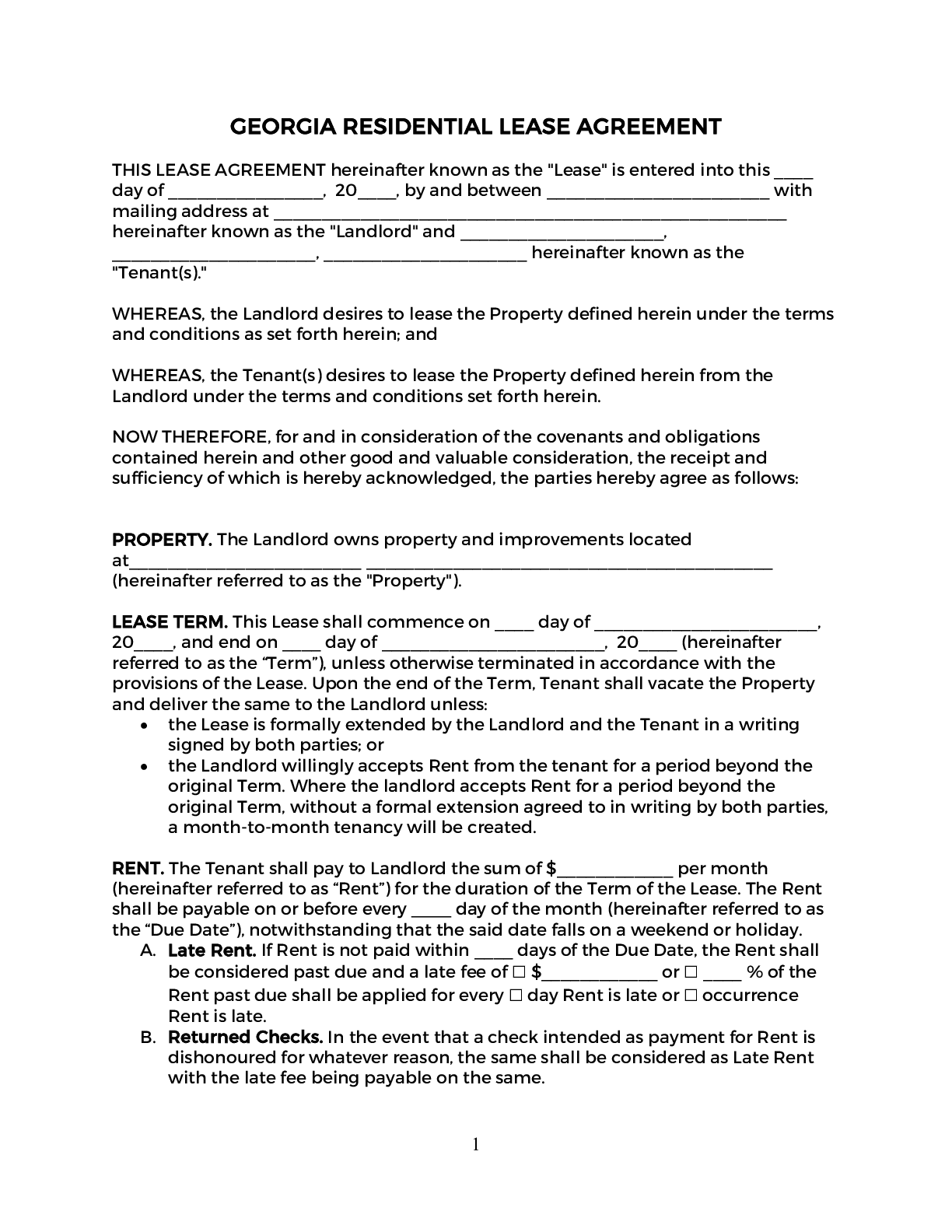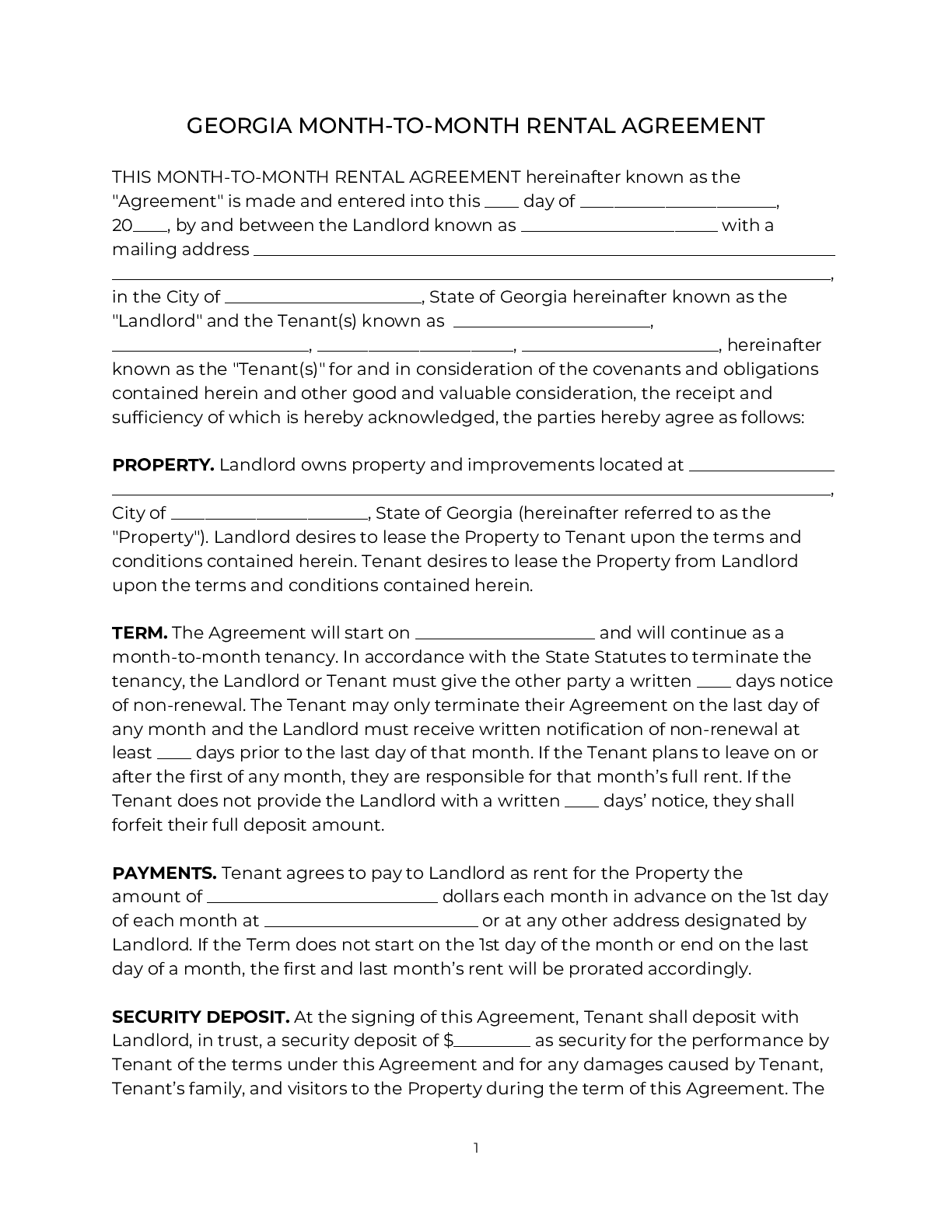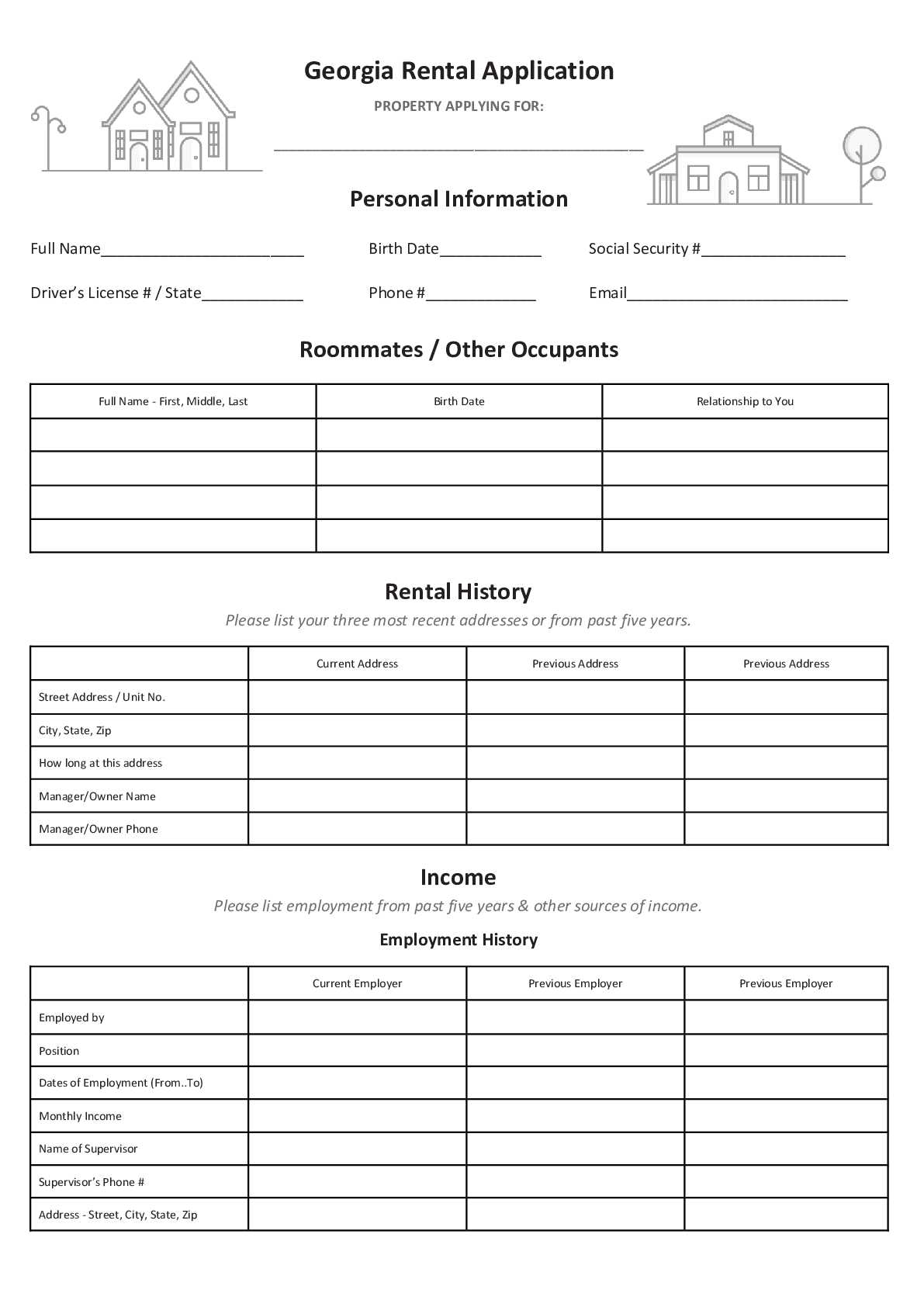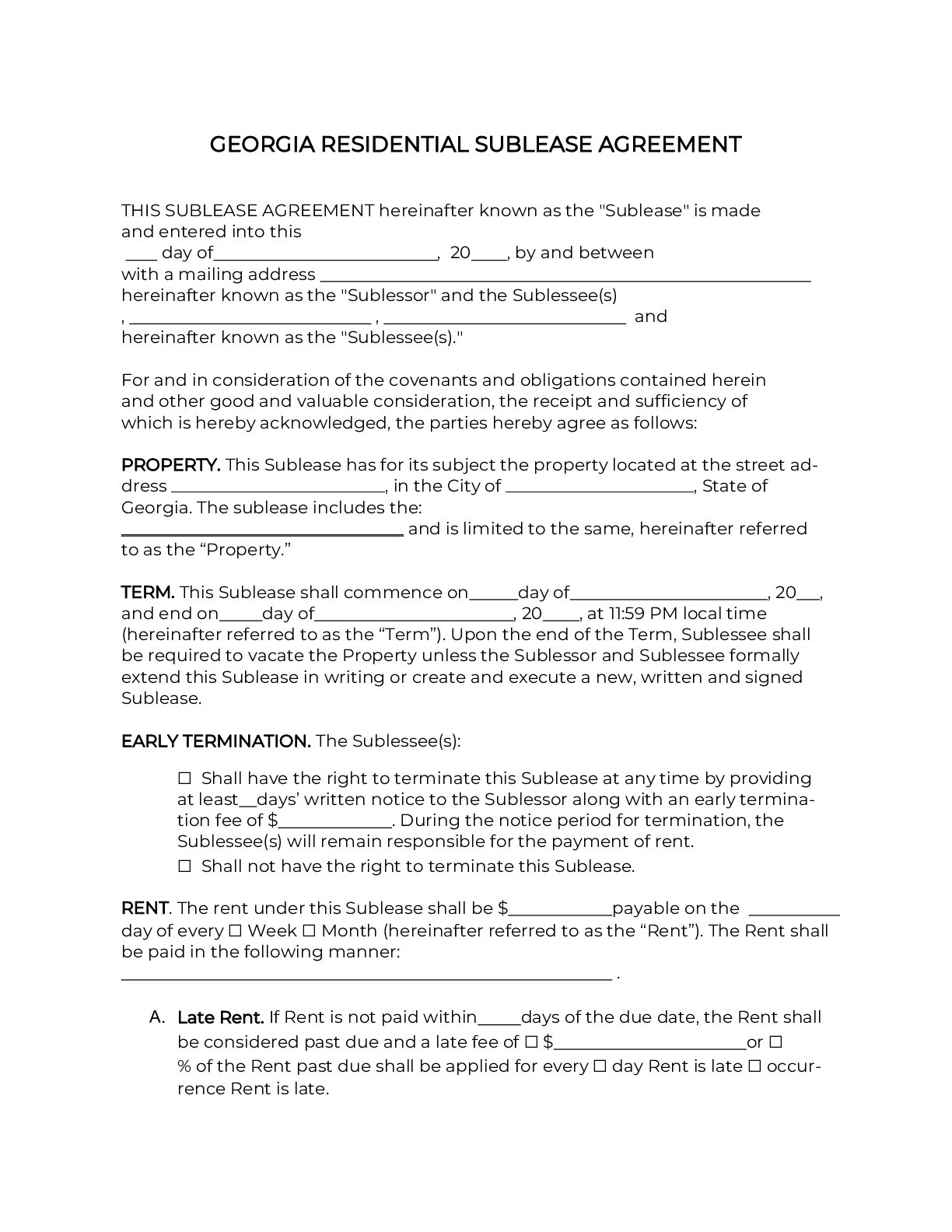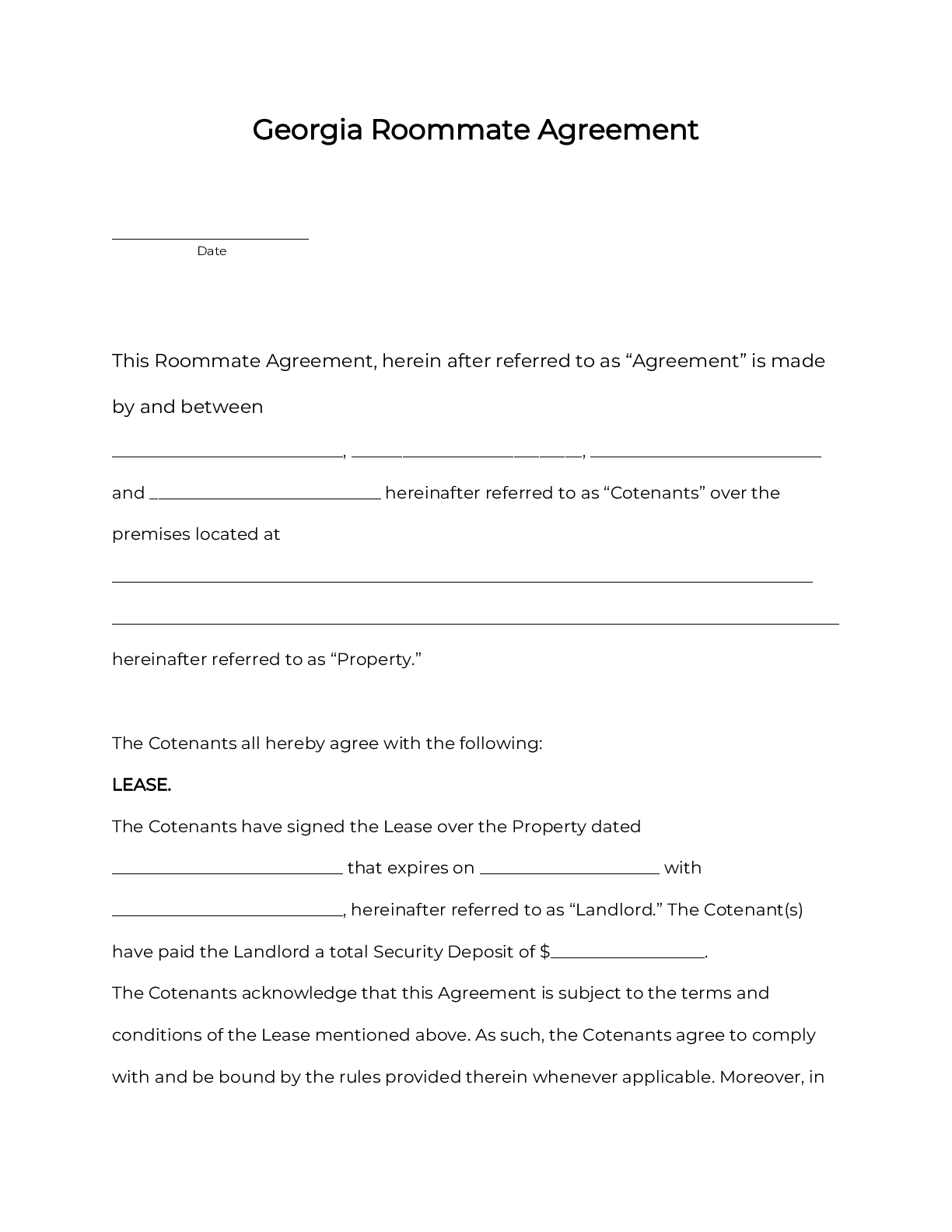A Georgia rental agreement is a legal contract between a landlord overseeing a rental property and a tenant using the property. Florida landlord-tenant law governs and regulates these agreements.
Georgia Rental Agreement Types
Georgia Required Lease Disclosures
- Landlord’s Name and Address (required for all leases) – Georgia landlords must give the tenant their name and address, or that of their authorized agent. This allows required communication (for example, about repairs) to happen in a smooth way. For this reason, the information often includes phone numbers and email as well.
- Flooding Notice Disclosure (required for some leases) – Georgia landlords must provide a warning with any property that has flooded 3 times or more within the past 5 years.
- Move-In Checklist (required for some leases) – Georgia landlords charging a security deposit must provide a move-in checklist to document the property’s condition. This helps ensure accurate deductions from the security deposit upon move-out. The checklist may be separate from the rental agreement.
- Lead-Based Paint Disclosure (required for some leases) – Landlords must provide an EPA-approved disclosure and informational pamphlet to tenants renting any property built before 1978.
To learn more about required disclosures in Georgia, click here.
Georgia Landlord Tenant Laws
- Warranty of Habitability – Georgia landlords can only rent out habitable property. This means providing certain basic health and safety features like heat, plumbing, and electricity. Landlords must repair any issues within a reasonable time after proper notice. Failure to repair lets a tenant sue the landlord, repair and deduct, or terminate the lease.
- Evictions – Georgia landlords may evict for rent nonpayment, lease violations, or illegal acts, among other things. Before filing eviction, landlords must serve tenants with prior notice to pay, comply or quit, depending on the eviction type. This means most evictions in Georgia take weeks to months.
- Security Deposits – Georgia has no cap on the amount of a security deposit. A landlord must return any unused portion of a tenant’s security deposit within 30 days after the lease ends.
- Lease Termination – Georgia landlords and tenants may end a month-to-month lease with 30 days of advance notice. Terminating a fixed-term lease early requires (in most cases) active military duty, landlord harassment, uninhabitable property, or domestic abuse.
- Rent Increases and Fees – Georgia does not limit the amount or frequency of a rent increase. There’s no regulation for most late fees or other fees, except that returned check fees are capped at $30 or 5% of the returned check’s face value (whichever is greater), plus any financial institution fees.
- Landlord Entry – Georgia landlords may enter rental property for reasonable business purposes like maintenance and inspections. There are no state-specific notice requirements for entry. This means landlords may enter at reasonable times with reasonable notice (by custom, at least 24 hours). There’s no notice requirement in emergencies.
- Settling Legal Disputes – Georgia lets small claims courts hear landlord-tenant disputes, as long as the amount in controversy is under $15,000. Unlike many states, Georgia’s small claims courts can hear eviction cases. The statute of limitations is four years for most housing issues.
To learn more about landlord tenant laws in Georgia, click here.
Sources
- 1 Ga. Code § 13-6-15(b)
-
The payee may charge the maker of the check, draft, or order a service charge not to exceed $30.00 or 5 percent of the face amount of the instrument, whichever is greater, plus the amount of any fees charged to the holder of the instrument by a bank or financial institution as a result of the instrument not being honored, when making written demand for payment…
Source Link




